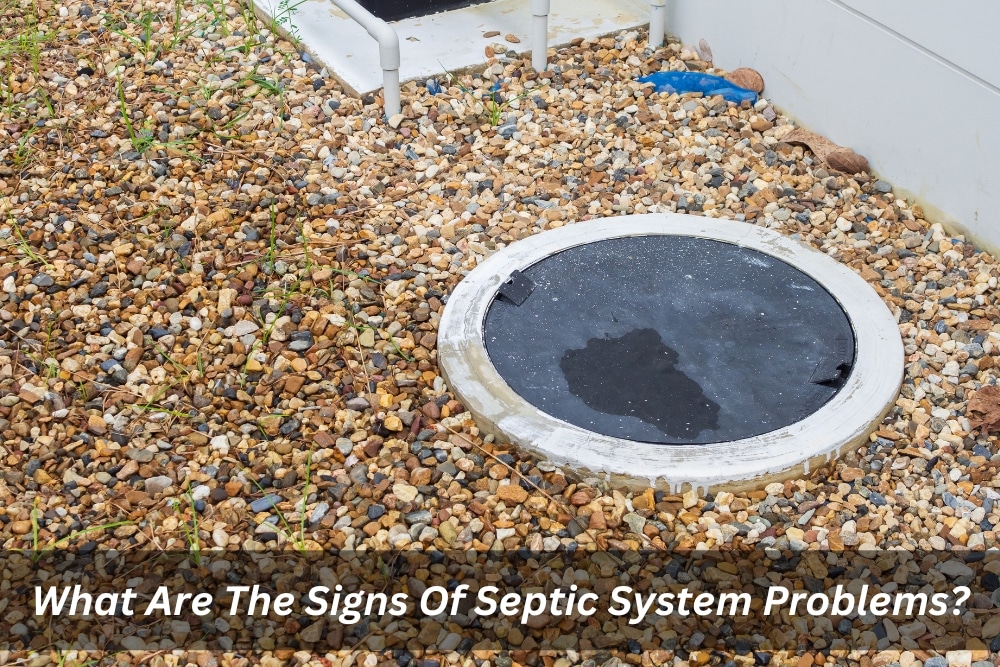Have you ever stopped to consider the potential complications that can arise with your septic system? It’s not a topic that typically crosses our minds, yet when issues with your septic system crop up, they can result in substantial expenses and environmental risks. In this article, we will delve into the indicators of septic system problems, how to recognize if your septic system is deteriorating, the underlying causes of these problems, measures to prevent them, and the associated costs of addressing a septic system issue. Let’s plunge into this crucial information to assist you in maintaining a well-functioning septic system, especially if you’re in need of a reliable plumber in Penrith.
What indicators can suggest issues with a septic system?
Detecting septic system problems early can save you from expensive repairs and unpleasant surprises. Here are some common signs that your septic system may be experiencing issues:
- Foul odours: If you notice a persistent, unpleasant smell around your home or yard, it could be a sign of septic system problems. Septic tanks are designed to contain and break down waste, so any odour escaping is a cause for concern.
- Slow drains: Slow drainage in sinks, showers, or toilets can indicate a septic system issue. It might mean your septic tank is full or that there’s a blockage in your pipes.
- Gurgling sounds: Unusual gurgling sounds emanating from your plumbing fixtures could be a sign that your septic system is experiencing issues with its proper function. This might occur when air escapes from the pipes due to a problem within the system.
- Pooling water: If you see water pooling in your yard, especially around the drain field area, it could be a sign of a septic system failure. Furthermore, a healthy system should absorb wastewater effectively.
- Sewage backup: The most concerning indicator is when sewage starts backing up in your residence. If you observe wastewater overflowing into your sinks, showers, or toilets, it clearly signals that your septic system is experiencing issues.
- Lush grass: While it may sound counterintuitive, an unusually green and lush patch of grass over your septic tank or drain field could tell that it’s oversaturated and not effectively processing wastewater.
How can you tell if your septic system is failing?
Now that you know the signs to look out for, it’s essential to understand how to confirm if your septic system is indeed failing. Here’s how you can tell:
- Regular inspection: Arrange routine inspections with a certified septic system expert, such as a skilled plumber in Blacktown. They possess the expertise to evaluate your system’s condition and detect any potential issues in a timely manner.
- Monitor usage: Be mindful of your water usage patterns. If you observe a notable uptick in water consumption without any obvious cause, it may indicate a malfunctioning septic system.
- Keep records: Maintain records of your septic system maintenance and any repairs done. This will help you track its history and identify any recurring issues.
- Odour test: If you suspect a problem, step outside and take a deep breath. Additionally, if you smell foul odours, it’s a strong sign of septic trouble.
- Check for wet spots: Walk around your yard, especially the area around the septic tank and drain field. If you spot wet or soggy ground, it may be a sign of a leak in the system.
- Monitor plumbing: Keep an eye on your plumbing fixtures. If you experience frequent backups or slow drains, it’s time to call in a professional for an inspection.
What factors contribute to septic system issues?
Understanding the causes of septic system problems can help you take preventive measures. Here are some common culprits:
- Lack of maintenance: Neglecting regular maintenance and pumping can lead to a buildup of solids in the septic tank, causing back-ups and system failures.
- Excessive water usage: Overloading the system with extreme water usage, such as multiple loads of laundry in a short time, can strain the system’s capacity.
- Flushing non-biodegradable items: Flushing non-biodegradable items like diapers, sanitary products, and paper towels can clog the system.
- Tree roots: Tree roots can infiltrate septic system pipes, causing blockages and damage.
- Chemicals and grease: Disposing of chemicals, oils, and grease down drains can disrupt the natural bacterial balance in the septic tank, hindering waste breakdown.
- Old age: Septic systems have a finite lifespan. Over time, they can deteriorate, leading to leaks and failures.
- Poor installation: Inadequate installation or wrong sizing of the septic system can result in long-term issues.
How can you take proactive measures to avoid septic system issues?
Prevention is key to maintaining a healthy septic system. Here are some proactive steps you can take:
- Regular pumping: Schedule regular septic tank pumping every 3-5 years, depending on household size and usage. This prevents the accumulation of solids that can clog the system.
- Conserve water: Implement water-saving fixtures and habits to reduce water usage. Moreover, repair any leaky faucets or toilets promptly.
- Mind what you flush: Only flush toilet paper and human waste. Also, dispose of non-biodegradable items in the trash.
- Watch your landscaping: Keep trees and shrubs away from the septic system components to prevent root intrusion. Roots can cause significant damage.
- Avoid chemicals: Refrain from pouring chemicals, oils, or grease down the drains. These can disrupt the natural bacterial balance in the septic tank.
- Proper installation: Ensure your septic system is correctly installed and sized for your household’s needs. Seek professional advice during installation.
- Regular inspections: Arrange for routine inspections by a skilled septic system professional to catch and address issues early.
How do you fix a septic system?
If you’ve identified septic system problems, it’s crucial to address them promptly. Here’s what to do:
- Contact a professional: Reach out to a licenced septic system professional for a thorough inspection. Basically, they can pinpoint the issue and recommend the necessary repairs.
- Repair or replacement: Depending on the severity of the problem, you may need to repair or replace certain components of your septic system. Trust the expert’s advice on this matter.
- Follow recommendations: If you find yourself in need of repairs, it’s essential to heed the advice of a qualified professional, such as a plumber in Campbelltown. Their recommendations may encompass tasks like septic tank pumping, addressing damaged pipes, or rectifying issues with a failing drain field.
- Regular maintenance: After repairs, establish a regular maintenance schedule to prevent future issues.
Conclusion
Maintaining a healthy septic system is important for both your wallet and the environment. By being watchful for signs of septic system problems, taking preventive measures, and seeking professional help when needed, you can avoid costly repairs and ensure your septic system continues to function efficiently. Remember, a well-maintained septic system is an investment in the long-term health of your home and the planet.
Don’t wait until you’re faced with the unpleasant signs of septic system problems; take action now to safeguard your home and your wallet. At Apex Plumbing Solutions, we understand the importance of a healthy septic system and offer expert inspections, maintenance, and repair services tailored to your needs. Whether it’s regular septic tank pumping, addressing drainage issues, or handling complex repairs, our team of licenced professionals is here to help. With our assistance, you can prevent costly septic system failures and enjoy peace of mind knowing your home’s vital systems are in excellent hands. Contact Apex Plumbing Solutions today and take the proactive step towards a trouble-free septic system!


